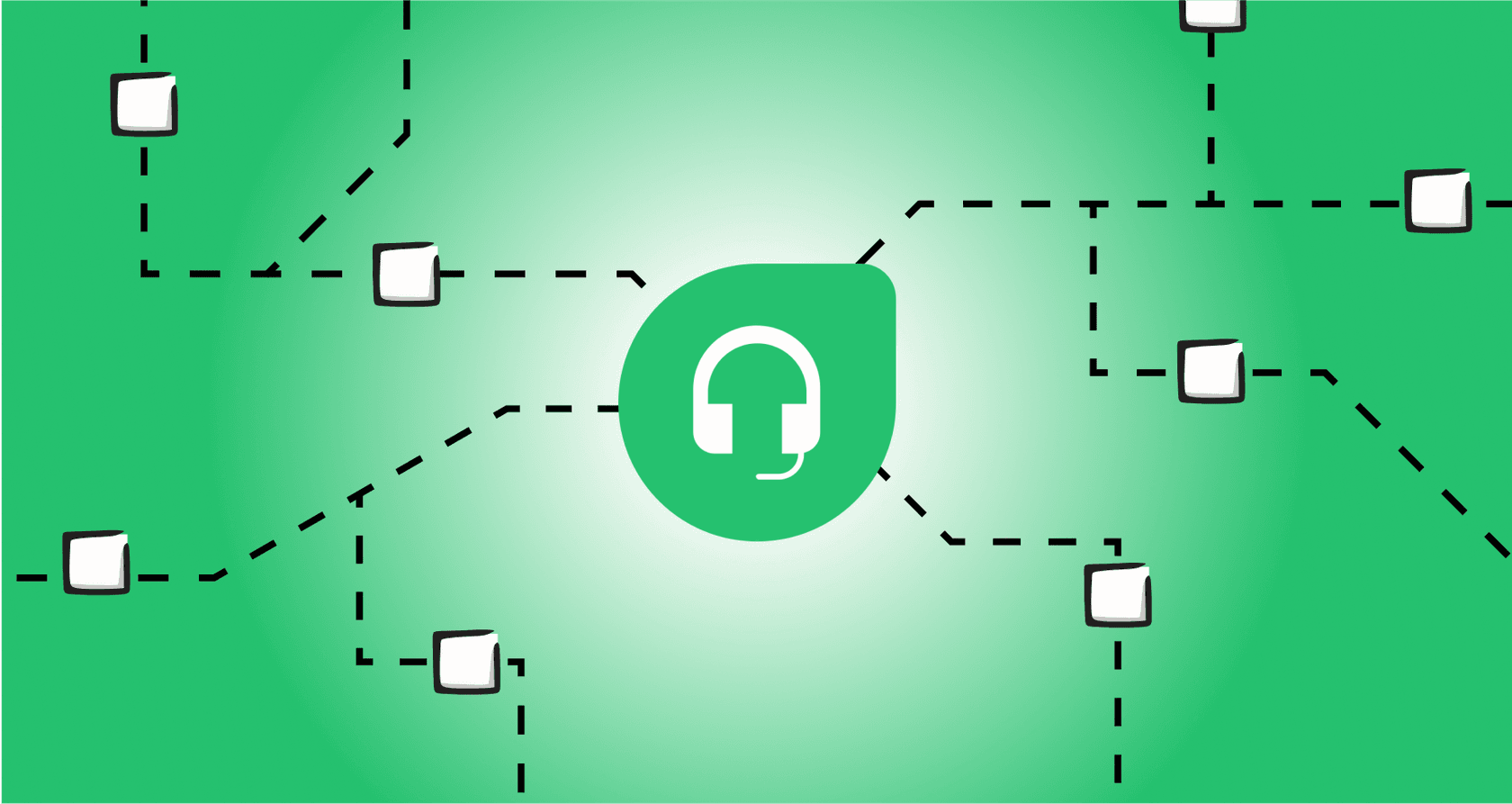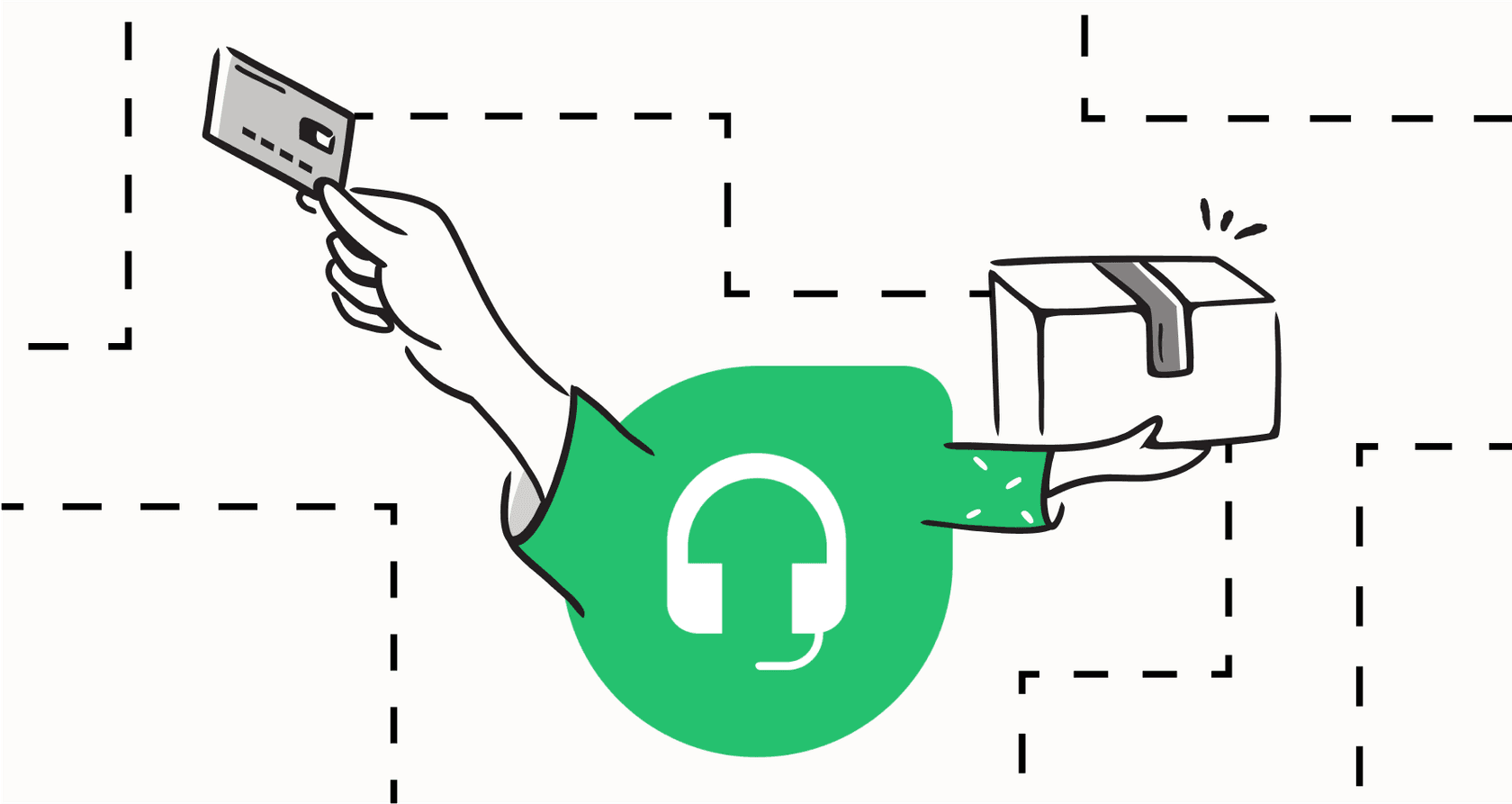A strategic guide to Freshdesk e-commerce plugins

Stevia Putri

Katelin Teen
Last edited January 16, 2026
Expert Verified

If you run an e-commerce store, you're familiar with the rhythm of customer support: it’s less of a gentle stream and more of an unpredictable flood. You picked a solid helpdesk like Freshdesk to bring some order to the chaos, which is a great start. Freshdesk's real magic for e-commerce isn't just in the platform itself, but in the impressive way it connects to your other tools.
We're talking about plugins, the powerful connectors that link your support desk to your storefront. To help you get the most out of your setup, let's walk through the must-have Freshdesk e-commerce plugins and explore how a smart AI layer can help you scale even further.
What are Freshdesk e-commerce plugins?
So, what exactly are these plugins? In simple terms, they're apps that connect your Freshdesk account to your online store and other software you use. Think of them as reliable helpers that pull important customer info, like order history and shipping details, directly into the screen your support agent is looking at.
The goal is to provide your team with a clear view so they don't have to jump back and forth between Freshdesk and your Shopify admin panel just to find a tracking number. It’s an excellent way to make things smoother and ensure accuracy. You can browse all the options over in the Freshworks Marketplace.
Three essential categories of Freshdesk e-commerce plugins
While the marketplace has hundreds of apps, most of the ones you'll care about for e-commerce fall into three main buckets. Let's break them down.
Storefront and order management
These are the absolute essentials. We’re talking about the plugins for platforms like Shopify or BigCommerce. Their job is helpful and straightforward: they pop up a convenient box next to a support ticket showing the customer’s order history, shipping status, and payment details. It’s an effective way to get a quick snapshot of the situation.
These tools provide agents with the data they need to take action. While they focus on displaying information, they arm your team with the context required to write the right email and let the customer know exactly what's happening.
Payment and subscription management
Then you've got your payment plugins for tools like Stripe or Chargebee. These let your agents see if a payment went through, manage a customer's subscription, or maybe even process a refund without leaving Freshdesk. That's another handy piece of information to have, as it saves them from having to log into a separate payment system.
By having this data side-by-side with your tickets, your team can more easily connect the dots between payment status and customer inquiries.
Marketing and team collaboration
This last group covers everything from marketing tools like Mailchimp to team chat apps like Slack. A Mailchimp plugin might show you which newsletters a customer is getting, while the Slack one lets your support team quickly ping the warehouse team about a tricky order.
These are great for teamwork and keeping everyone on the same page. While managing multiple integrations requires a bit of coordination, they ensure your support process is well-connected across your entire organization.
Considerations for managing multiple Freshdesk e-commerce plugins
Adding multiple plugins is a powerful way to expand your capabilities, though it's important to manage how your team interacts with all that extra information to keep things efficient.
Managing multiple information sources
Every plugin you install adds another valuable source of information to the Freshdesk interface. Freshdesk's ability to pull in so much data is a huge asset, and with a bit of strategy, your agents can use these tools to build a complete picture of the customer's journey.
Many teams look for ways to unify this information into a single view to make it even easier for agents to process high volumes of tickets during busy seasons.
Connecting data across different tools
Freshdesk provides a robust platform where each plugin works perfectly on its own. To get even more value, you can layer on tools that help these insights talk to each other. For example, your Shopify data and your policy documents in Confluence can be linked together for a more holistic view.
If a customer asks about a shipping delay, having your logistics updates from a Google Doc accessible alongside your order data is a big win. This is where all your knowledge in one place becomes helpful. A tool like eesel AI works within the Freshdesk ecosystem to connect these different sources, giving your team one smart place to look for answers.
Opportunities for further automation
Freshdesk's e-commerce plugins are built to provide your agents with the data they need to succeed. As your store grows, you can build on this foundation by adding automation to lower the number of tickets someone has to manually answer.
By pairing these plugins with AI, you can automate repetitive questions like "Where is my order?" This allows your team to grow sustainably while maintaining high service standards.
A better way: Moving beyond Freshdesk e-commerce plugins with an AI layer
Instead of just adding more plugins, consider adding a smart AI layer that works alongside Freshdesk. This layer connects to all your tools at once and starts handling the work for you, shifting you from just looking up information to actually automating resolutions.
Why an AI layer is a smart approach
One AI integration can connect to your storefront, payment system, internal docs, and team chat all at the same time. A platform like eesel AI is built to complement your existing Freshdesk setup. It hooks into your helpdesk and store, learning from your past support conversations to provide a unified knowledge base for your whole company.
One of the best parts is that the setup is completely self-serve. You can connect it to Freshdesk and get started in a few minutes, making it a very accessible addition to your toolkit.
Automating the whole job, not just part of it
Here is how a typical "where is my order?" ticket gets handled more efficiently:
-
The standard plugin way: A customer emails asking for their order status. Your agent opens the ticket, finds the Shopify widget, and uses that data to send a personalized reply. It's a solid, reliable process.
-
The eesel AI way: The AI Agent from eesel AI sees the email come in. It automatically checks the order status in Shopify, drafts a friendly, personalized response with the tracking link, and can even send it off. The ticket is resolved instantly, giving your agents more time for complex queries.
With eesel AI, you have total control to decide exactly which tickets get automated and how the AI should reply, so it always matches your brand's voice.
Unifying your knowledge to answer tricky questions
This isn't just for simple questions. Because an AI layer can read and understand your help center articles, internal process docs in Google Docs, and past ticket conversations, it can handle much more complex questions. Things like, "What's your return policy for sale items?" become easy to answer automatically.
What about Freshdesk pricing?
The great thing about Freshdesk is its flexibility. You can install marketplace apps on any Freshdesk plan, ensuring you have access to the tools you need. If you're interested in Freshdesk's built-in AI tools, called Freddy AI, these are available as convenient add-ons.
Here's a look at the main paid plans:
| Plan | Price (per agent/month, billed annually) | Key Features for E-commerce | AI Add-on Cost |
|---|---|---|---|
| Growth | $15 | Ticketing, customer portal, basic reporting | Freddy AI Copilot: $29/agent/month |
| Pro | $49 | Advanced ticketing, custom reporting, SLAs | Freddy AI Copilot: $29/agent/month |
| Enterprise | $79 | Audit logs, skill-based assignment, advanced security | Freddy AI Copilot: $29/agent/month |
Note: Pricing is subject to change. Based on information from Freshworks in 2026.
The clear path to scaling your support with Freshdesk e-commerce plugins
Freshdesk's e-commerce plugins provide an incredible foundation for any growing store. They help you centralize your data and empower your agents. To take your support to the next level, adding an AI layer is the next logical step for any e-commerce brand that wants to grow efficiently.
It connects all your knowledge, automates the easy stuff, and gives both your team and your customers a much better experience. A tool like eesel AI fits right into the Freshdesk setup you already have, making your existing workflow even more powerful.
Ready to automate your e-commerce support for real?
You can start resolving tickets automatically today. With eesel AI, you can be up and running in minutes and immediately see a drop in repetitive questions, giving your team the breathing room to focus on customers who really need their help.
Why not see for yourself? Start a free trial or book a quick demo to see how you can connect your tools and scale your support within the Freshdesk ecosystem.
Frequently asked questions
Freshdesk e-commerce plugins are apps that connect your Freshdesk account to your online store and other essential software. Their primary purpose is to pull crucial customer information, like order history and shipping details, directly into the agent's view within Freshdesk. This helps agents avoid switching between multiple systems.
Most traditional Freshdesk e-commerce plugins are primarily focused on data visibility, meaning they display information to help agents work faster. They provide the necessary data for agents to formulate personalized and accurate replies.
Relying on numerous Freshdesk e-commerce plugins is a great way to centralize data, though it requires a bit of strategy to manage the various information sources. Combining these plugins with a unified AI layer can help further streamline the workflow and reduce manual interpretation.
Yes, there are dedicated Freshdesk e-commerce plugins for major storefront platforms like Shopify and BigCommerce, as well as payment and subscription management tools like Stripe and Chargebee. These plugins bring relevant data from those systems into Freshdesk.
An AI layer goes beyond simply displaying data; it unifies information from all your tools simultaneously (store, payments, internal docs) and automates entire resolution processes. Instead of just looking up information, the AI can understand, draft, and send personalized responses, significantly reducing manual ticket volume.
Depending on the plugin, agents can see customer order history, shipping status, payment details, subscription information, and even marketing campaign participation. The goal is to provide a quick, consolidated view of customer data to assist with inquiries.
Share this post

Article by
Stevia Putri
Stevia Putri is a marketing generalist at eesel AI, where she helps turn powerful AI tools into stories that resonate. She’s driven by curiosity, clarity, and the human side of technology.




